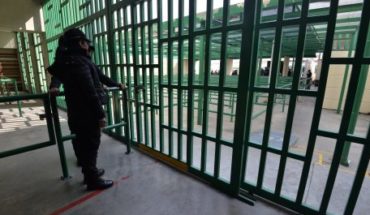Kenya Barris is a well-known screenwriter and producer mostly television, responsible for the hit “Black-ish”, his spin off “Grown-ish” and “Mixed-ish”, realities such as “America’s Next Top Model” with Tyra Banks and the screenplay for “Girls Trip” (2017), among many other things. Now he also becomes the protagonist of “#BlackAF” (yes, as fuck), a new Netflix comedy centered on his own fictionalized home life – did anyone say “Curb Your Enthusiasm” ?-, with his wife Joya (cool Rashida Jones) and their six children (yes, Barris also has six kids). Taking as an excuse the fact that Drea (Iman Benson), her 17-year-old teenage daughter, is making a documentary video as admission work for THE NYU’s audiovisual career, the cameras are spread throughout the house and beyond, following the parent to wherever she goes, in the best mockumentary style of “The Office” or “Modern Family”. Here, the difference with other “family” sitcoms is that the Barris are rather irresponsible parents, more concerned about what they will say (especially white people), than for the well-being of their little ones, rather than able to take care of themselves.
“For of slavery” and “For of slavery too”, the first two episodes of this initial season of eight – directed by Ken Kwapis (who went through “The Office”) and written by Barris- they make clear the kind of acidic humor that its creator points to, which sometimes works wonders and hits the nail when it comes to racial stereotypes that must be eradicated, and so many others mess with Hollywood exaggeration and archetypes. The Barris are the “new rich” in this flirty neighborhood of Los Angeles since Dad hit her with several series and made a big deal with Netflix (did they want something more ‘meta’? Mum, a retired lawyer, is dedicated to the house and boys, ranging from three to 18 years old, to a diverse range of cool, focused and responsible children, hypersensitive and even pathological liars. A great infant-juvenile casting that often balances the narrative fallacys of the story.
At the end of the day, everything is arranged
It’s up to us to stand from the point of view of Drea, who through his cameras (and documentary) decides to examine his family – and mostly his parents – not as different as Lisa did in “Any Given Sundance” (2008) with “Capturing the Simpsons.” The results are not so different either, as the images reveal how banal and petchy the Barris can be, not just inside. Kenya and Joya go through hairless life on their tongues, often ranting on reason, and so many others without realizing that (despite everything) times are changing.” #BlackAF” speaks to a specific audience, the African-American, but also takes the opportunity to give context to many stereotypical situations, almost always, in a way harmful to popular culture. Answers to certain choices such as dress and appearance in general – linked to those same stereotypes – are the most interesting thing about the show, “serious” moments that help us understand a culture that is totally alien to us. Barris does not seek empathy, but provocation, and in most of these confrontations it is exceeded, forcing us to keep distance from these overly unpleasant characters at times.
A family, like you and me (??)
Equally, and despite its flaws, “#BlackAF” maintains dynamism, draws us some that other accomplice laugh, very welcome in these dark moments, and shows us another side of American (and Hollywood) society where minorities are nowhere near being the victims and afford to rise to the most unpleasant and known Caucasian archetypes of TV. SCORE: 6.0
#blackAF
S01E01 and 02: “because of slavery” and “because of slavery too”In this note:





